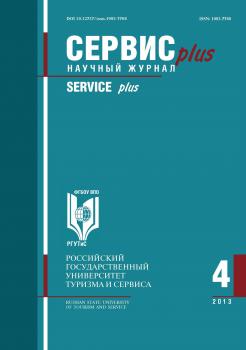The article tells about the transformation of a wandering ancient story about the passion of a mother to her stepson, shows how each era brings about changes in the depiction of the heroine, set in a boundary situation between happiness and duty. In the tragedy of Euripides "Hippolytus" the main character is the king´s son, and Phaedra is a performer of the will of the goddess Cypris. Without knowing, Hippolytus violated ethics law that prescribed to honor equally all the gods and goddesses: he loved to worship the goddess of the hunt Artemis and didn´t bring enough victims to Aphrodite. According to the mythological sources, the election of Phaedra as the instrument of revenge can be explained by the fact that Phaedra carries the burden of a tragic guilt for her grandfather, who told Hephaestus about the affair between Aphrodite and Ares. Euripides describes the suffering of Phaedra. His character brings her life as a gift to the children. The tragedy of the debt victory is displayed brighter by the Greek author than by the French one. But the image of Phaedra, made by Jean Racine, is nobler than it was made by Euripides. The heroine of Euripides sacrifices herself for the sake of duty and commits suicide, but makes a low act, leaving a note that slanders Hippolytus, but the queen by Racine, dying, emphasizes the innocence of her stepson. The stepson´s attitude to the passion of his stepmother changes too. For Hippolytus by Euripides the passion of Phaedra is the evidence of low-lying nature of women, for Hippolytus by Jean Racine it is the touching continuation of conjugal love at first, and then, when Phaedra separates him in her mind from the father, and emphasizes that loves Hippolytus, it is a horrible discover, but not the reason for the generalization, reasoning and discrimination against all women. The continuation of the incarnation of vagrant story about Phaedra we see in the poetry of Marina Tsvetaeva in the tragedy "Phaedra". Tsvetaeva simplifies antique tragedy, removing the problem of choosing between happiness and duty, but in the poem she returns to the tragic beginning of it, highlighting the theme of the sublime punishments with passion that is emphasized in the interpretation ofR. Viktyuk, who created a cinema play "Passion about Phaedra in four dreams of Roman Viktyuk" on the basis ofTsvetayeva´s texts.
Phaedra, Hippolytus, Aphrodite, fatal fault, choice, passion, duty, punishment, sublime, tragedy, time
В данной статье автор ставит своей целью показать, как верования и ценности эпохи влияют на изображение женского образа, поставленного в пограничную ситуацию выбора между счастьем с любимым и долгом, на этическую оценку этого образа, даваемую автором через других героев и само построение произведения. Методы нашего исследования — сравнительно-литературоведческий, структурно-генетический, индуктивный и дедуктивный. Сравнительно-литературоведческий применяется там,
где идёт сравнение образов Федры и Ипполита в трагедиях Еврипида и Ж. Расина, М. Цветаевой. Структурно-генетический используется там, где устанавливается временная последовательность произведений, художественные истоки, сходство и различие композиционной структуры. Индуктивный метод применяется там, где исследуется, например, как личная жизнь Еврипида повлияла на образы его трагедий и их идейное содержание.
1. Boree Yu.B. Estetika: uchebnik. M.: Vysshaya shkola, 2002. 511 s.
2. Evripid. Medeya, Ippolit, Vakkhanki. SPb.: Azbuka-klassika, 2004. 251 s.
3. Lesnaya-Ivanova I. Dary vdokhnoveniya. M.: Izd-vo «U Nikitskikh vorot», 2013. 332 s.
4. Losev A.F., Sonkina G.A., Takho-Godi A. A., Timofeeva N.A., Cheremukhina N. M. Antichnaya literatura. M.: Prosveshchenie, 1986. 463 s.
5. Rasin Zh. Fedra. SPb.: Azbuka-klassika, 2010. 185 s.
6. Evripid. Stat´ya iz Vikipedii. [Elektronnyy resurs] URL: http://ru.wikipedia.org/wiki/EBpHnwi (data obrashcheniya: 08.082013).
7. Literra: [sayt]. URL: http://literra.ucoz.ru/publ/literaturovedenie/analiz_tvorchestva/tragedija_rasina_ quot_fedra_quot/ (data obrashcheniya: 08.08.2013).
8. Lib: [sayt]. URL: http://www.lib.ru/POEEAST/EVRIPID/evripidO_l.txt (data obrashcheniya: 08.08.2013).
9. Dissercat: [sayt]. URL: http://www.dissercat.com/content/khudozhestvennyi-mir-tragedii-zh-rasina-fedra» (data obrashcheniya: 08.08.2013).
10. Lib: [sayt]. URL: http://www.lib.ru/INOOLD/RASIN/rasinl__05.txt (data obrashcheniya: 08.08.2013).
11. Cvetaeva: [sayt]. URL: http://cvetaeva.ouc.ru/fedra.html (data obrashcheniya: 08.08.2013).

















